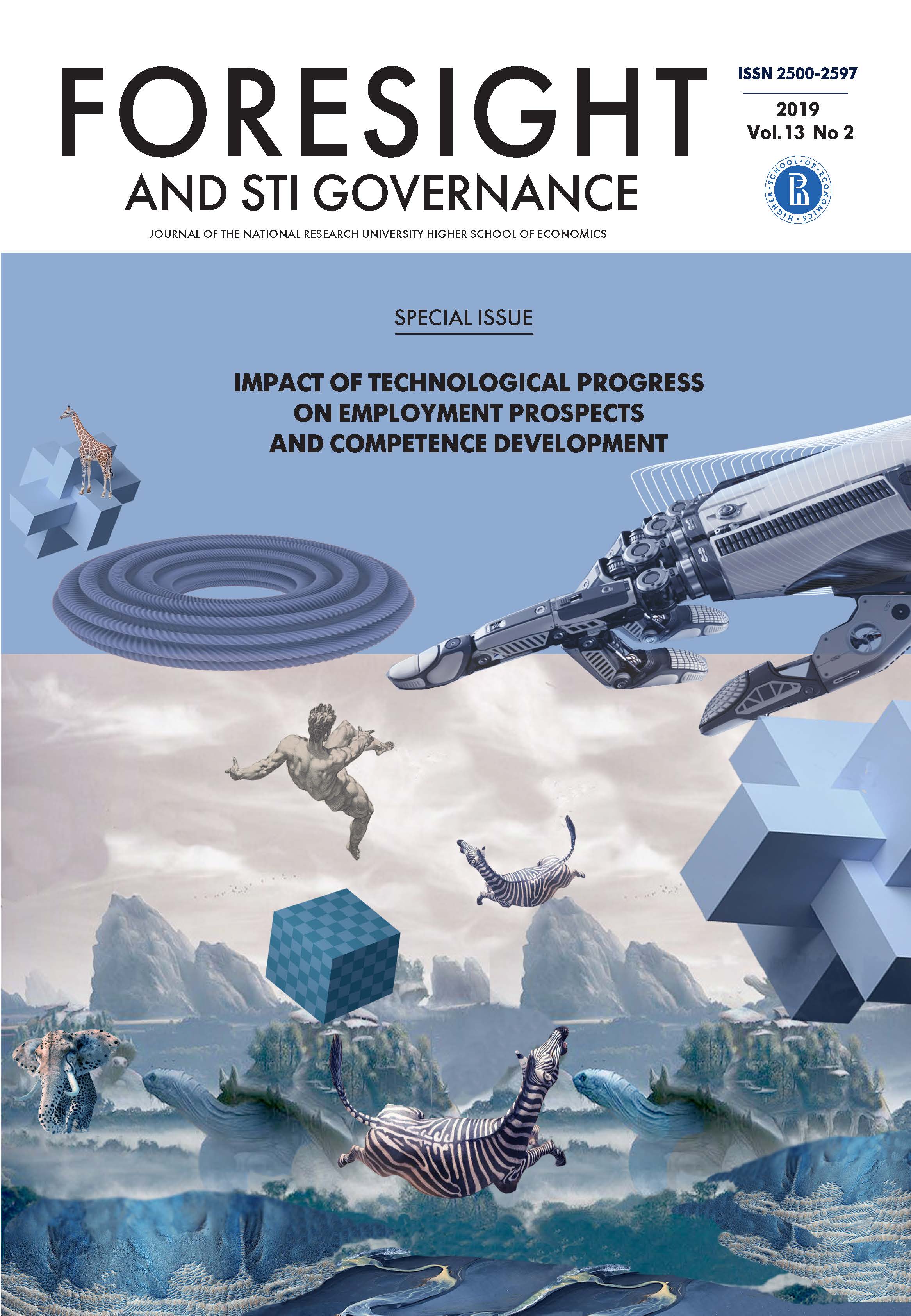Abstract
This paper analyzes how the organization of work has changed since the 1990s including the emergence of digital forms of employment. Following the evolution of work over the course of the 20th century and the start of the 21st, this paper is divided into three sections: the adoption of industrialization, automation and digitalization, and, finally, the virtual economy. Each of these periods correspond with a certain model of production: Fordism, Taylorism, and Uberism (or Waymoism, named for Google’s Waymo project), which lie at the basis of the organization of work (process management, project management, and joint or cooperative activity) and present different sets of skill requirements. During the discussion of the evolution of work organization, including its geographical and temporal aspects, how attitudes of the individuals towards work have changed over time is discussed. Finally, the concept of coworking is analyzed as it forms the cultural foundation for virtual work. Due to the continuing nature of this research, this article presents only the initial results. This paper aims to determine how coworking spaces impact the socioeconomic development of emerging and developed regions. Fourteen in-depth interviews with managers of coworking spaces in a variety of regions serves as the empirical basis of this research over the course of periods of one and two months.
References
Autor D.H. (2015) Why are there still so many jobs? The history and future of workplace automation // Journal of Economic Perspectives. Vol. 29. № 3. Р. 3-30.
Beck U., Giddens A., Lash S. (eds.) (1994) Reflexive Modernization. Cambridge: Polity Press.
Bell D. (1999) The Coming of Post-Industrial Society. New York: Basic Books.
Boes A., Kampf T., Langes B., Luhr T., Steglich S. (2014) Cloudworking und die Arbeit der Zukunft. Kritische Analysen am Beispiel der Strategie „Generation Open von IBM. Kassel: BTQ Kassel.
Bouncken R.B., Reuschel A.J. (2016) Coworking Spaces: How a phenomenon of the sharing economy builds up a novel trend for the workplace and entrepreneurship // Review of Managerial Science. Vol. 12. P. 317-334.
Brynjolfsson E., McAffee A. (2014) The Second Machine Age. New York: W. W. Norton & Company.
Doeringer P., Piore M. (1972) Internal Labor Markets and Manpower Analysis. Lexington, MA: D.C. Heath and Company.
Ferriss T. (2011) The 4-Hours-Weak. Escape the 9-5 live anywhere and join the new rich. London: Random House.
Forgacs D. (1988) The Gramci Reader. Selected Writings. New York: New York University Press.
Frey C.B., Osborne M.A. (2013) The future of employment: How susceptible are jobs to computerization. Working Paper. Oxford: University of Oxford.
Friebe H., Lobo S. (2006) Wir nennen es Arbeit. Munchen: Heyne.
Fujita K., Hill R.C. (1995) Global Toyotaism and Local Development // International Journal of Urban and Regional Research. Vol. 19. P. 7-22.
Giddens A. (1990) The Consequences of Modernity. Oxford: Basil Blackwell Press.
Hall P., Soskice D. (eds.) (2001) Varieties of Capitalism. The Institutional Foundations of Comparative Advantage. Oxford: Oxford University Press.
Helfen M. (2015) Institutionalizing precariousness? The politics of boundary work in legalizing agency work in Germany, 1949-2004 // Organization Studies. Vol. 36. № 10. Р. 1387-1422.
Hirsch-Kreinsen H. (2016) Arbeit und Technik bei Industrie 4.0 // APUZ. Vol. 66. № 18-19. Р. 10-16.
Jessop B. (1992) Fordism and post-Fordism: A critical reformulation // Pathways to industrialization and regional development / Eds. M. Storper, A.J. Scott. London: Routledge. P. 42-62.
Kern H., Schumann M. (1984) Das Ende der Arbeitsteilung? - Rationalisierung in der industriellen Produktion, Bestandsaufnahme, Trendbestimmung. Munchen: C.H. Beck Verlag.
Krafcik J. (2018) Waymo One: The next step on our self-driving journey // Medium. 05.12.2018. Режим доступа: https://medium.com/waymo/waymo-one-the-next-step-on-our-self-driving-journey-6d0c075b0e9b, дата обращения 08.02.2018.
Laris M. (2018) Transportation Waymo launches nation's first commercial self-driving taxi service in Arizona // Washington Post. 06.12.2018. Режим доступа: https://www.washingtonpost.com/local/trafficandcommuting/waymo-launches-nations-first-commercial-self-driving-taxi-service-in-arizona/2018/12/04/8a8cd58a-f7ba-11e8-8c9a- 860ce2a8148f_story.html?noredirect=on&utm_term=.954585aba276, дата обращения 30.01.2019.
Lutz B. (1989) Der kurze Traum immerwahrender Prosperitat: eine Neuinterpretation der industriell-kapitalistischen Entwicklung im Europa des 20. Jahrhunderts. Frankfurt am Main: Campus Verlag.
Lutz B., Sengenberger W. (1974) Arbeitsmarktstrukturen und offentliche Arbeitsmarktpolitik: eine kritische Analyse von Zielen und Instrumenten. Gottingen: Schwartz.
Piore M.J., Sabel C.F. (1984) The Second Industrial Divide: Possibilities for Prosperity. New York: Basic Books.
Rifkin J. (1995) The End of Work. New York: Putnam Publishing Group.
Rifkin J. (2014) The Zero Marginal Cost Society. The Internet of Things, the Collaborative Commons and the Eclipse of Capitalism. New York: Palgrave Macmillan.
Schilling M.A. (2000) Towards a general modular systems theory and its application to inter-firm product modularity // Academy of Management Review. Vol. 25. P. 312-334.
Stampfl N. (2016) Arbeiten in der Sharing Economy // Vierteljahreshefte zur Wirtschaftsforschung. Vol. 85. № 3. P. 37-43.
Taiichi O. (1988) Toyota Production System. Cambridge: Productivity Press.
Tapscott D. (1998) Growing up Digital: The Rise of the Net Generation. New York: McGraw-Hill.
Thelen K. (2012) How Institutions Evolve. The Political Economy of Skills in Germany, Britain, the United States and Japan. Cambridge: The Cambridge University Press.
Van Delden C. (2016) Crowdsourced Innovation. Revolutionizing Open Innovation with Croudsourcing. Insights and Best Practices from Innosabi. Munchen: Innosabi GmbH.
Wood S.J. (1991) Japanization and/or Toyotism? // Work, Employment and Society. Vol. 5. № 4. P. 567-600.
Zuboff S. (1988) In the Age of the Smart Maschine. The Future of Work and Power. New York: Basic Books.

This work is licensed under a Creative Commons Attribution 4.0 International License.

